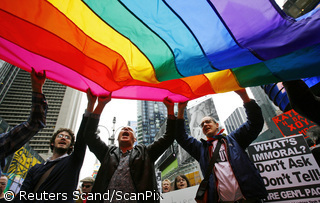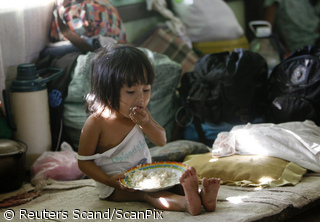In many countries, "e-government" is more political rhetoric than hard reality
Published:
9 May 2004 y., Sunday
In many countries, "e-government" is more political rhetoric than hard reality. But not in the tiny Baltic nation of Estonia, where democracy is running about as close to real-time as you can get.
Estonia's cabinet meetings are a good example. Each week, government ministers gather at a few long, grey tables in a seemingly spartan room not far from the country's parliament building. The walls of the room may be mostly bare, but the tables certainly are not. Spaced at intervals along the table tops are sleek, flat-panel monitors, one for each minister.
Underneath the desks are high-end computers, each hard-wired to the internet via broadband connections.
The day's agenda is displayed on a giant projection screen. Any cabinet member who happens to be travelling can participate in the meeting via instant messaging.
As the meeting progresses, press officers send updates to the Estonian government's website.
In the space of 30 seconds, government decisions are made available to any Estonian citizen with an internet connection.
None of this seems outrageously hi-tech here in Estonia. The cabinet's been holding meetings like this since the year 2000. The decision to open up the workings of government in this way stretch back to 1992, when Estonia achieved independence.
Šaltinis:
BBC News
Copying, publishing, announcing any information from the News.lt portal without written permission of News.lt editorial office is prohibited.
The most popular articles
 Tiwonge Chimbalanga and Steven Monjeza are married, but in Malawi homosexuality is banned.
more »
Tiwonge Chimbalanga and Steven Monjeza are married, but in Malawi homosexuality is banned.
more »
 The World Bank today launched the fourth book in the critically acclaimed Moving Out of Poverty series, which provides bottom up perspectives on poverty and local realities by over 60,000 people living in 500 communities in 15 countries.
more »
The World Bank today launched the fourth book in the critically acclaimed Moving Out of Poverty series, which provides bottom up perspectives on poverty and local realities by over 60,000 people living in 500 communities in 15 countries.
more »
 Ten years ago, European leaders pledged to end poverty in the EU by 2010. As this deadline approaches, the goal is still some way off.
more »
Ten years ago, European leaders pledged to end poverty in the EU by 2010. As this deadline approaches, the goal is still some way off.
more »
 For many 2009 will be a historic year with the coming into force of the Lisbon Treaty, the outcome of the Copenhagen summit and the inauguration of the first black US president.
more »
For many 2009 will be a historic year with the coming into force of the Lisbon Treaty, the outcome of the Copenhagen summit and the inauguration of the first black US president.
more »
 Not answering the phone, celebrating Hogmanay and reading Dickens' Christmas Carol are just three seasonal traditions that MEPs shared with us.
more »
Not answering the phone, celebrating Hogmanay and reading Dickens' Christmas Carol are just three seasonal traditions that MEPs shared with us.
more »
 More and more people make their homes and own property in EU countries other than the one in which they hold citizenship.
more »
More and more people make their homes and own property in EU countries other than the one in which they hold citizenship.
more »
 European Parliament President Jerzy Buzek has made an televised Christmas and New Year address to European citizens, looking ahead to the challenges of the coming year.
more »
European Parliament President Jerzy Buzek has made an televised Christmas and New Year address to European citizens, looking ahead to the challenges of the coming year.
more »
 Lithuania takes the 1st position in the EU by the number of students in the country.
more »
Lithuania takes the 1st position in the EU by the number of students in the country.
more »
 Sergei Kovalev, former political prisoner turned activist for Russian human rights group Memorial gave an emotional and heartfelt address to the European Parliament on Wednesday 16 December.
more »
Sergei Kovalev, former political prisoner turned activist for Russian human rights group Memorial gave an emotional and heartfelt address to the European Parliament on Wednesday 16 December.
more »
 Strengthened passenger rights for travel by bus are an important item on the agenda when the Transport, Telecommunications and Energy Council (TTE) meets on 17–18 December.
more »
Strengthened passenger rights for travel by bus are an important item on the agenda when the Transport, Telecommunications and Energy Council (TTE) meets on 17–18 December.
more »